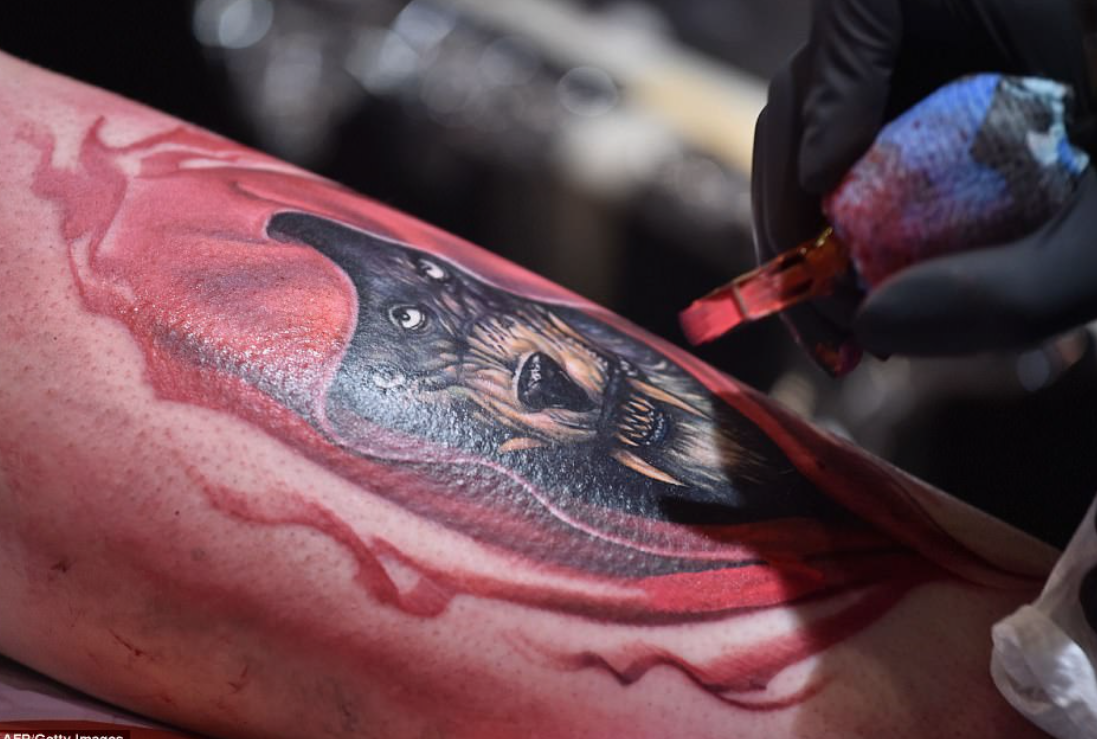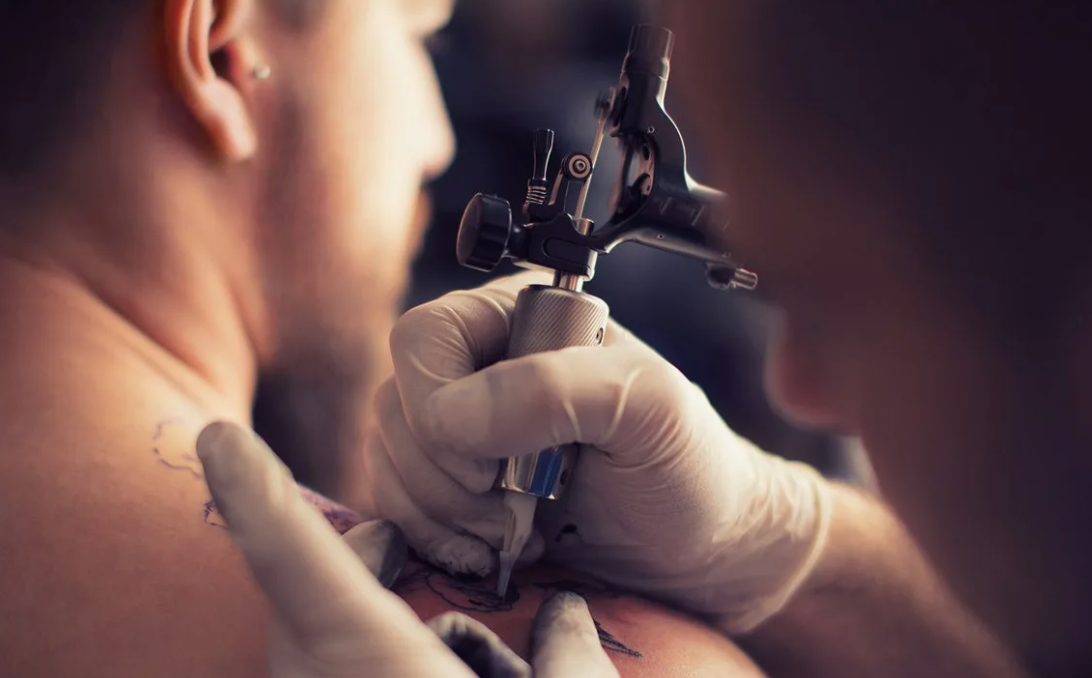Tattoo and Health are deeply interconnected subjects, as getting a tattoo is a significant decision that goes beyond mere aesthetics and involves a range of health considerations that must be carefully evaluated. While tattoos can be a powerful form of self-expression, understanding the potential health implications is crucial for anyone contemplating body art.
Before you decide to get inked, it’s essential to consider your individual health status. Factors such as allergies, skin conditions, and autoimmune disorders can influence how your body responds to the tattooing process. Consulting with a healthcare professional can help you identify any potential risks tailored to your personal health history.
Moreover, the choice of tattoo studio is equally important. Ensuring that the artist follows stringent sanitation practices and uses sterile equipment can greatly reduce the risk of infections and complications. It is advisable to research the tattoo parlor’s reputation and read reviews from previous clients to ensure a safe experience.
Finally, it’s important to be aware of the long-term implications of having a tattoo. Understanding how tattoos may affect your skin and possible reactions over time will prepare you for any future health considerations. Your tattoo should be a source of pride, not a health concern.

Understanding Skin Allergies Related to Tattoo Inks
Tattoo inks contain a variety of pigments and chemicals that can trigger skin allergies in some individuals. Allergic reactions can manifest in several ways, including itching, redness, swelling, and even blistering at the site of the tattoo. It is essential to be aware of these potential allergic responses before deciding to get inked.
Common allergens found in tattoo inks include various colorants, preservatives, and metals. For instance, black inks often contain carbon or iron oxide, while colored inks may consist of heavy metals such as cadmium, cobalt, and lead. These components can provoke hypersensitivity reactions in susceptible individuals.
It is advisable to perform a patch test prior to getting a tattoo, especially for those with known skin sensitivities. A small amount of ink can be applied to a discreet area of skin to check for any adverse reaction over a few days. This method can help identify potential allergens and minimize the risk of an allergic response.
If a skin allergy does occur after getting a tattoo, it is crucial to seek medical advice promptly. A healthcare professional can recommend appropriate treatment, which may include topical corticosteroids or antihistamines to alleviate symptoms.
| Ink Component | Potential Allergy | Symptoms |
|---|---|---|
| Carbon | Possible irritation | Redness, swelling |
| Cobalt | Contact dermatitis | Itching, rash |
| Cadmium | Severe reaction | Blistering, pain |
| Lead | Systemic toxicity | Fatigue, neurological issues |
In summary, understanding potential skin allergies related to tattoo inks is vital for anyone considering body art. Conducting a patch test and consulting with medical professionals can significantly reduce risks and lead to a safer tattoo experience.
Evaluating Personal Health Conditions Before Tattooing
Before deciding to get a tattoo, it is crucial to assess your personal health conditions as certain medical issues can complicate the tattooing process and affect healing. This evaluation helps ensure your safety and well-being during and after the tattooing procedure.
Chronic Conditions
If you have chronic conditions such as diabetes, autoimmune disorders, or skin conditions like eczema or psoriasis, it is essential to consult with a healthcare professional before getting inked. Diabetes can affect healing, increasing the risk of infection and resulting in poor fading of the tattoo. Autoimmune disorders may cause your body to react unpredictably to ink, potentially leading to allergic reactions or complications.
Allergies and Skin Sensitivity
Individuals with known allergies, particularly to dyes or certain metals, should conduct patch tests to determine their sensitivity to tattoo ink ingredients. Skin sensitivity also plays a role; those with sensitive skin may experience adverse reactions, such as rashes or prolonged irritation. Be sure to discuss any previous allergic reactions with your tattoo artist and consider alternative inks if necessary.
Consulting a Dermatologist: When and Why
Before getting a tattoo, it is advisable to consult a dermatologist to assess your skin health. A dermatologist can identify any pre-existing conditions, such as eczema or psoriasis, which may be exacerbated by tattooing. Furthermore, individuals with sensitive skin may require personalized advice on how to prepare for the procedure.
Consultation is especially important for those with a history of allergic reactions, as certain inks can trigger sensitivities. A dermatologist can recommend hypoallergenic ink options or alternative methods if needed. Additionally, if you have moles or unusual skin growths, a dermatologist can evaluate their condition to ensure they are not at risk of complications during tattooing.
For individuals with autoimmune disorders or compromised immune systems, professional guidance is crucial. A dermatologist can help navigate potential healing issues that may arise and provide strategies for minimizing risks. This is particularly important for aftercare, as proper care can significantly impact the healing and longevity of the tattoo.
In summary, consulting a dermatologist before getting a tattoo can help ensure skin safety, prevent adverse reactions, and enhance the overall experience. Taking this precaution not only protects personal health but also contributes to the desired outcome of the tattoo itself.
Choosing Safe and Reputable Tattoo Artists
When considering getting a tattoo, the importance of selecting a safe and reputable tattoo artist cannot be overstated. A skilled artist not only creates beautiful artwork but also prioritizes health and safety standards. Here are key factors to consider:
- Verify Credentials:Ensure the tattoo artist is professionally trained and licensed. Look for certifications that demonstrate their adherence to health and safety regulations.
- Check Reviews and Portfolio:Research online reviews and testimonials from previous clients. Examine the artist’s portfolio to evaluate their style and quality of work, ensuring it resonates with your desired outcome.
- Visit the Studio:Prior to getting inked, visit the tattoo studio. Assess the cleanliness, organization, and overall environment. A reputable studio should have a sterile and professional appearance.
- Ask About Sanitation Procedures:Inquire about the studio’s sanitation practices. Confirm that they use single-use needles, sterile equipment, and follow industry standards for cleanliness.
- Communication:Good communication is vital. Discuss your tattoo idea, and observe how the artist responds. A reputable artist will take the time to understand your vision and provide constructive input.
- Health History:A responsible tattoo artist will ask about your medical history and any allergies. This ensures your safety and helps in avoiding potential complications during the tattooing process.
- Price Considerations:While cost shouldn’t be the primary factor, avoid extremely low-priced tattoos, as they could indicate a lack of quality or safety. Invest in your health and artistry.
By considering these factors, you can ensure that you choose a safe and reputable tattoo artist, leading to a positive and healthy tattooing experience.
Importance of Sterilization and Hygiene in Tattoo Studios
Sterilization and hygiene are critical aspects of any professional tattoo studio. Ensuring that all equipment and surfaces are free from pathogens helps prevent infections and other complications that can arise from improper practices. Tattoos involve puncturing the skin, which creates a portal for bacteria and viruses to enter the bloodstream. Therefore, strict adherence to hygiene protocols is essential for both the client’s safety and the artist’s wellbeing.
Firstly, all needles, ink, and other tattooing equipment should be either single-use or properly sterilized before each session. Autoclaves are commonly used in tattoo studios to sterilize equipment effectively. Artists must verify that their tools are either disposed of after each use or adequately sanitized to ensure they meet health regulations.
Secondly, the workspace must be clean and organized. Surfaces should be wiped down with disinfectants before and after each tattooing session. This not only ensures a sterile environment but also contributes to a professional atmosphere that instills confidence in clients.
Additionally, tattoo artists should adhere to personal hygiene practices. This includes regular hand washing, the use of gloves, and the wearing of clean clothing. Gloves should be changed between clients and whenever switching tasks, such as touching equipment or cleaning up, to minimize cross-contamination.
Moreover, clients play a role in promoting hygiene within the studio. They should seek studios that follow stringent sterilization protocols and don’t hesitate to ask questions about the cleaning practices in place. Transparency in a studio’s hygiene practices reflects a commitment to safety and professionalism.
In summary, the importance of sterilization and hygiene in tattoo studios cannot be overstated. A commitment to these practices not only protects clients from potential infections but also enhances the overall reputation of the studio. Responsible tattoo artists prioritize hygiene to create a safe and welcoming environment for their clients.
Recognizing Signs of Infection Post-Tattoo

Getting a tattoo involves breaking the skin, which can introduce bacteria and lead to potential infections if proper aftercare is not followed. It’s essential to be aware of the signs of infection to address any issues promptly.
Common Symptoms of Infection
After receiving a tattoo, monitor the area for symptoms such as increased redness, swelling, or warmth around the tattoo site. These signs may indicate an inflammatory response, but if they worsen or persist beyond a few days, it could point to an infection.
Additionally, be vigilant for any discharge coming from the tattoo. While some oozing is normal in the initial healing phase, any green or yellow pus, especially if accompanied by a foul odor, should raise concern. Pain that escalates instead of diminishing can also be a telltale sign of an infection.
Other Indicators to Watch For
Fever is another critical indicator of a potential infection, especially if accompanied by chills and malaise. A systemic response might signal that the infection has spread beyond the localized area. If you experience persistent fatigue or general unwellness alongside localized symptoms, seeking medical help is advised.
Stay vigilant during the healing process and consult a healthcare professional if you notice any alarming symptoms. Early intervention can prevent complications and ensure proper healing of your new tattoo.
Managing Pain and Aftercare for Newly Inked Skin
Getting a tattoo can be a thrilling experience, but it’s essential to understand the pain management and aftercare required for your newly inked skin. Effective pain management can enhance your tattoo experience and minimize discomfort during the healing process.
Pain Management Techniques
Before getting inked, consider using over-the-counter pain relievers like ibuprofen or acetaminophen to reduce discomfort. Avoid aspirin as it may increase bleeding. Additionally, some tattoo shops offer numbing creams that can be applied before the procedure. Make sure to discuss these options with your tattoo artist beforehand to ensure they are suitable for your specific tattoo location and skin type.
During the tattooing process, mindfulness techniques such as deep breathing or visualization can help manage pain. Be open to taking short breaks if needed, which allows your body to relax and can lessen the overall discomfort.
Aftercare for Tattooed Skin
After getting your tattoo, proper aftercare is crucial to ensure it heals correctly and retains its beauty. Start by gently cleaning the tattoo with mild soap and water, then pat it dry with a clean towel. Avoid soaking the tattoo in water and refrain from exposing it to direct sunlight for at least two weeks.
Moisturize the tattooed area with a fragrance-free, hypoallergenic lotion or a specialized tattoo aftercare product. Apply a thin layer of ointment as directed, usually two to three times a day, and do not pick at scabs as this can lead to scarring.
Monitoring the tattoo for signs of infection, such as excessive redness, swelling, or discharge, is essential. If any of these symptoms occur, contact a medical professional promptly. Following these pain management and aftercare tips will help ensure a smooth healing process and long-lasting results for your new tattoo.
Understanding the Risks of Tattoo Removal Procedures
Tattoo removal has become a common consideration for individuals who wish to erase or modify their tattoos for various reasons. While advancements in technology have made removal procedures more effective, there are inherent risks involved that potential candidates should be aware of before proceeding.
Types of Removal Procedures
Several techniques exist for tattoo removal, including laser therapy, surgical excision, and dermabrasion. Each method carries distinct risks.
Laser therapy is the most widely used option, employing focused light beams to break down tattoo ink particles. Common risks include skin irritation, changes in skin texture, and potential scarring. Furthermore, not all ink colors respond equally well to lasers, which can result in uneven removal or the need for multiple sessions.
Surgical excision entails cutting out the tattooed skin and stitching the surrounding skin back together. This method is effective but comes with significant risks such as visible scarring, infection, and extended recovery time.
Emotional and Psychological Considerations
The psychological impact of tattoo removal should not be overlooked. Individuals may experience feelings of regret or distress, especially if the removal process does not yield the expected results. The emotional journey associated with leaving behind a part of one’s identity can be challenging.
Additionally, the financial burden of removal procedures often exceeds initial expectations. Multiple sessions may be necessary, and costs can accumulate quickly, leading to further stress.
Before deciding on tattoo removal, individuals should weigh the potential risks and consider thorough consultations with qualified professionals to discuss expectations, outcomes, and necessary aftercare. Being well-informed is crucial for making the right decision regarding tattoo removal.
Considerations for Tattoos on Sensitive or Scarred Skin

Getting a tattoo on sensitive or scarred skin requires careful consideration due to the unique challenges these areas present. Before deciding to get inked, it’s essential to understand the implications for both the tattoo application process and the healing period.
Consultation with a Professional
Prior to getting a tattoo, it’s crucial to consult with a qualified tattoo artist who has experience working with sensitive or scarred skin. Openly discuss your skin condition and any concerns you might have. A knowledgeable artist can advise you on:
- Ink selection: Some inks may irritate sensitive skin more than others.
- Techniques: Different tattooing methods can affect the outcome and healing time.
- Design considerations: Simpler designs may work better to reduce trauma to the skin.
Skin Assessment
Understanding the condition of your skin is vital before proceeding. Here are several aspects to assess:
- Sensitivity: Determine if your skin reacts to heat, pressure, or contact with certain materials.
- Scarring: Analyze the type of scars. Raised scars (keloids) or discolored patches may not hold ink well, affecting the final appearance.
- Overall skin health: Ensure the area is free from infection or irritation before tattooing.
Consider having a patch test, where a small area of skin is tattooed, to monitor how your skin reacts. This can provide valuable insights into what to expect during the full tattoo process.
Ultimately, the decision to tattoo sensitive or scarred skin involves weighing the desire for body art against potential risks and the unique complexities posed by your skin condition. Prioritize open communication with your tattoo professional and pay attention to your skin’s specific needs to achieve a successful outcome.
Long-Term Effects of Tattoos on Health and Skin
Getting a tattoo involves injecting ink into the skin, which can lead to various long-term effects on health and skin. Understanding these potential consequences is essential for anyone considering body art.
Skin Reactions and Allergies
One of the most common long-term effects of tattoos is the possibility of skin reactions. Some individuals may develop allergic reactions to the pigments used in tattoo ink, leading to symptoms such as itching, redness, and swelling. These reactions can occur even years after the tattoo is applied, as the body’s sensitivity to specific chemicals may change over time. Regular monitoring of the tattooed area is advisable, especially if any unusual symptoms arise.
Potential Infections and Scarring
Tattoos can also increase the risk of infections, particularly if proper aftercare is not observed during the healing process. In rare cases, invasive infections, such as cellulitis, can occur long after a tattoo has healed. Additionally, scarring can develop in some individuals, particularly if the tattoo artist does not follow sterilization protocols or if the person has a tendency to scar easily. Scarring can alter the appearance of the tattoo and may require medical treatment to manage.
Furthermore, tattoos can complicate medical procedures, such as MRI scans, due to the presence of certain metal-based pigments in the ink. This potential for interference highlights the importance of consulting with healthcare professionals regarding any tattoos before undergoing medical imaging or treatments.
Ultimately, individuals should weigh the long-term health and skin implications when considering a tattoo. Careful selection of a reputable artist, attention to aftercare, and periodic skin evaluations are essential measures to minimize potential risks associated with tattoos.
Q&A – Tattoo and Health:
What health risks should I be aware of before getting a tattoo?
Before getting a tattoo, it’s important to consider several health risks. These include allergic reactions to tattoo inks, which can cause skin irritation and inflammation. There is also the risk of infections, particularly if the tattooing equipment is not properly sterilized. Additionally, some people may experience keloid scarring, where raised scars form at the tattoo site. If you have pre-existing skin conditions or a compromised immune system, it may be wise to consult a healthcare professional before proceeding.
Can tattoos affect my skin health in the long term?
Yes, tattoos can affect skin health in various ways. Over time, the ink can fade or change color, which might lead to the need for touch-ups or removals. Some people may develop skin reactions or sensitivities over the years. Additionally, exposure to UV light can cause tattoos to blur or yellow. It’s important to maintain good skin care practices and consider how tattoos may impact your skin in the long run.
How can I ensure the tattooing process is safe?
To ensure a safe tattooing process, start by researching reputable tattoo artists and studios. Check their licenses, hygiene practices, and reviews from previous clients. Confirm that the studio uses single-use equipment and follows strict sanitation guidelines. Don’t hesitate to ask questions about the ink, the tattooing process, and aftercare instructions. Following these steps can greatly reduce the risk of complications.
What aftercare should I follow after getting a tattoo to promote healing?
After getting a tattoo, proper aftercare is crucial for healing. Keep the tattoo covered with a sterile bandage for the first few hours. Once it’s removed, gently wash the area with mild soap and water, and let it air dry. Apply a thin layer of fragrance-free moisturizer or a tattoo aftercare ointment. Avoid soaking the tattoo in water, such as swimming pools or baths, for at least two weeks. Protect it from sun exposure by using sunscreen once it’s healed. Following these steps can help prevent infection and promote healing.
Are there any specific health conditions that might prevent someone from getting a tattoo?
Yes, certain health conditions can impact a person’s ability to get a tattoo safely. Individuals with autoimmune diseases, such as lupus or psoriasis, may experience adverse reactions to tattoo inks due to their immune system’s response. Those with diabetes might have impaired healing, increasing the risk of infection. Additionally, individuals on blood thinners may face excessive bleeding during the tattooing process. It’s advisable to consult a healthcare provider if you have any health concerns before getting a tattoo.
What health risks should I be aware of before getting a tattoo?
Before getting a tattoo, it is important to consider several health risks. One significant concern is the potential for allergic reactions to the ink or materials used in the tattooing process. Some people may develop skin infections if proper hygiene practices are not followed during and after the procedure. Additionally, tattoos can increase skin sensitivity and may lead to complications for individuals with certain medical conditions, such as autoimmune diseases. If you have a history of keloids or scarring, that could also be a risk factor to take into account. It’s advisable to consult with a healthcare professional before proceeding to ensure you are fully informed about any potential health implications.
How can I choose a reputable tattoo artist to ensure my health and safety?
Choosing a reputable tattoo artist is crucial for your health and safety. Start by researching local tattoo studios and artists, focusing on their experience and qualifications. Look for reviews and testimonials from former clients to gauge their satisfaction with the artist’s work and hygiene standards. It’s important to visit the studio beforehand to assess cleanliness and observe the safety practices followed by the artist. Don’t hesitate to ask about their sterilization processes for equipment and request to see their health department licenses. A professional artist should be open and willing to discuss any concerns you may have. Additionally, ensure that the artist uses high-quality ink and materials to minimize the risk of adverse reactions.
If you’re looking for a Trendy Tattoo Artist in Chicago, our studio is ready to provide unique designs and a professional approach to every tattoo.




